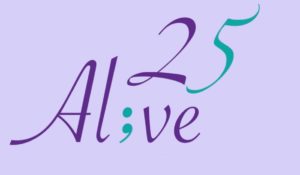I was 19 when I hit rock bottom. Mental illness wasn’t new to me, but COVID created the perfect storm. I was bullied starting at age 7. By Grade 5, I knew something was wrong. I explained to my Mom that the bullying was starting to affect me. Between the ages of 12-18, I probably saw 10-15 therapists. I went but I would not talk; they would tell my Mom that I was being difficult and not to come back because they couldn’t help me.
High school was more of the same. I was no longer actively being bullied because I simply no longer existed. I was invisible, which was just a new kind of hurt. I struggled with depression, anxiety, disordered eating, self-harm and suicidal ideation. The only thing that got me through was the hope of going to university in the U.S. and getting a true fresh start that I desperately needed.
University was everything I dreamed of. I was thriving. Then COVID hit. I went home and not only did I relapse, but I fell further into my mental illnesses than ever before.
In April 2020, my parents searched for help once again. I was put on waitlists that ranged from months to more than a year in length. My first suicide attempt came two months later, in June 2020.
We visited the emergency department at Sunnybrook hospital, but I was sent home a few hours later. Because I was 19, we were mistakenly told there was nothing they could do; too old to be admitted to the youth unit and too young for hospital staff to feel comfortable putting me on the adult unit.
The next few months consisted of numerous ER trips and a continued struggle to find providers; professionals turning me away for being over 18 and others for being under 25.
In August, I went back to Atlanta for school. Less than a week in, I attempted suicide again and was hospitalized on an adult unit. It was awful. After the three-day hold was up, my Dad flew down, brought me home and I withdrew from the semester.
About a month later, we were lucky and found an amazing psychiatrist. She got me into a residential treatment facility for 18 to 23 year olds, a unit that was brand new and only had four beds. But I had to leave after 10 days of what was meant to be a six-week stay because I was too sick for what the program could support.
Two days after discharge, I was back in the Sunnybrook emergency department after another attempt and again was sent home. This time, my psychiatrist went directly to the inpatient unit and learned that the hospital takes youth up to 20. The inpatient staff communicated with the ER and got me admitted.
I was quite a difficult patient for the two months that I was on this unit. But despite this, I underwent treatment that saved my life. While still an inpatient, I was referred for an autism test and was eventually diagnosed with this developmental disorder. Suddenly, the difficulties I had while growing up and the ineffectiveness of my treatments made sense.
When I was deemed to no longer be a danger to myself, I was discharged to continue outpatient treatment. I went back to Atlanta for the 2021 spring semester and am now in the best headspace I have ever been.
My story goes much deeper than this article, but my message is that we need to do better for young adults. The 18-25 age group gets overlooked when it comes to mental health care. Legally, at 18 one is considered an adult and is not eligible for youth services. However, from a scientific standpoint, we know the brain does not finish developing until approximately 25. The neurobiological development and life events that happen at this age make this group unique in its struggles and care needed.
Mental illness is beyond prevalent in this age group yet youth services won’t serve us and adult services are not equipped for our needs. The Canadian emergency department doctors who treated me were right; putting me on the adult unit would have been traumatizing. I know because my time there in the U.S. was just that. However, sending me home with nothing but an information packet from 2014 was not a good option, either.
We need psychiatric units specifically for ages 18-25. We need to grow the field of adolescent medicine to have providers who can continue to see teenagers into their 20s. We need early detection and intervention that meets the needs of the patient before they require hospitalization.
I know these are big asks for big issues that cannot be solved overnight. But we need to start somewhere. We, young adults, are falling through the cracks. Help us climb back up.
25 Al;ve is an Instagram platform I am creating with the help of other survivors to educate and bring awareness to mental health issues for young adults. We want to share our experiences to show just how badly change is needed and provide insight on what can be done from patients’ perspectives.
I hope to go to medical school to become an adolescent medicine doctor specializing in mental health. I want to change the system, but I can’t wait 10+ more years to get started. I need to start now. And so I am.



The comments section is closed.
Thank you for sharing your story, your bravery and your strength. It is devastating to hear how few resources and supports are available when there is such a huge need, now more than ever before, and everyone knows this yet the system is not set up in a way to help those in need. Wishing you continued strength on your journey for mental wellness and to bring more treatment options to those who need them most.
It’s challenging to find ADHD care as an adult, I have heard.